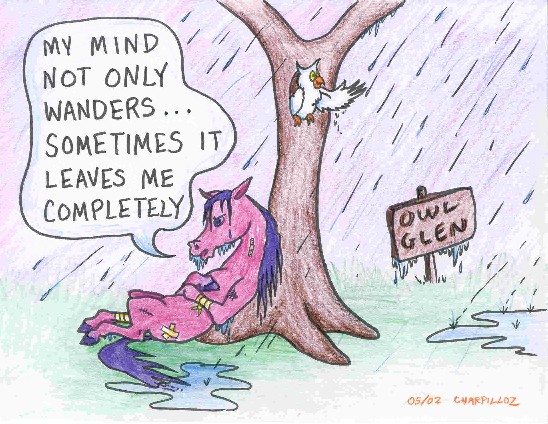"All that we are is the result of what we have thought. The mind is everything. What we think we become."
-Buddha
-Buddha

Say the color of these words:
Red Green Blue
Blue Red Blue
Now again...
Red Green Blue
Blue Red Blue
This is the Stroop Task—a psychological test that shows our tendency to read words faster than we can name colors.
In my opinion, this test deals with the brain…things relating to mental fortitude and adaptability. Scientific studies have shown that the left side of the brain functions in a logical way while the right is the intuitive side. If it’s possible for the right and left brain to function independently of one another, then it’s easy to recognize how to distinguish between science versus experience, intuition and gut feeling, and the physical brain versus the mind and soul.
Through the utilization of a medical example, it’s possible for a person to be completely brain-dead, yet their mind is still active. Patients have woken up out of years-long comas and been able to recollect certain meaningful instances that (while at the same time that they were said to have zero brain function) occurred, such as the encouraging and healing words of a loved one. Oftentimes, these subjects have also encountered collisions with the noumenal realm, experiencing phenomena such as “the light” or contact with a love one who has passed.
To say that the mind and brain are not two separate entities is like saying the word reads green when it clearly says red. Mind-independent reality deals with those things that are fully separate from every human mind—cats, trees, rocks, etc.—they exist not because we conceived them, but simply because they are; this, however, is quite different from saying all of these such entities are independent of the brain. The brain deciphers these things as they are, while the mind opens up the creative juices and interprets them for what you wish/are taught to see.
It’s completely understandable to think of a brain-independent mind, but it’s slightly more challenging to conceive of a mind-independent brain. The mind, in my opinion, is the dominator—it can clearly alter your brain’s perception of things by taking into consideration other factors, such as learning from experience and the ‘knowledge’ of others. The brain tells you facts, while the mind is a more comical branch that plays games with your thoughts and emotions.
As our brain plays the Einstein, the mind is entertaining our inner Picassos. Like the legendary phrase tells us, “it takes two to tango”; to be wholly functional and intellectual as a being, it’s necessary for the mind and brain to serenely coexist. As H.G. Wells once stated, “The forceps of our minds are clumsy things and crush the truth a little in the course of taking hold of it.” It’s up to us to distinguish between reality and perception, facts and feelings, Einstein and Picasso.

No comments:
Post a Comment